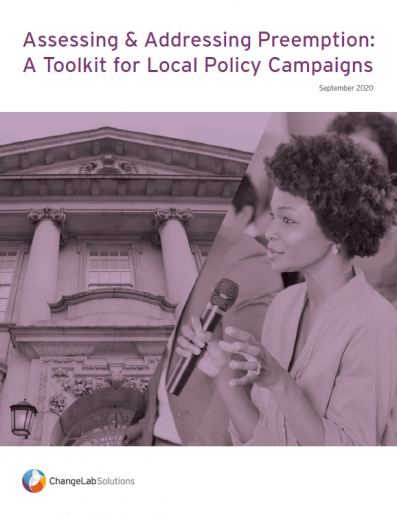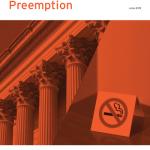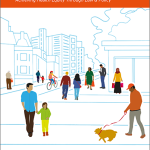Assessing & Addressing Preemption
A toolkit for local policy campaigns
Local governments often serve as “laboratories of democracy,” developing and testing innovative policies with the potential to improve health outcomes and reduce health inequities. However, some state legislatures are abusing their authority and blocking local policy innovations.
What is preemption, and why is it an important issue? To block local policies, state legislatures rely on the legal doctrine of preemption, which allows a higher level of government (eg, state government) to limit or even eliminate the power of a lower level of government (eg, local government) to regulate a certain issue. When misused, state preemption can threaten the ability of local communities to adopt health- and equity-promoting laws and policies.
How can ChangeLab Solutions’ preemption toolkit help local changemakers? ChangeLab Solutions produced Assessing & Addressing Preemption to help policymakers and advocates understand how preemption affects local public health policy campaigns. The toolkit begins with an overview of preemption, describes how it can affect health equity, and outlines generally how local authority is granted in different states. The toolkit then identifies three scenarios that a local policy campaign may face, offering guidance on how best to respond to threatened, proposed, or enacted state preemption of health-promoting policies.
Is preemption always bad for public health? In recent years, state legislatures have increasingly preempted local laws related to labor standards, civil rights, public health and safety, technology, environmental protection, local zoning, and local taxes, among other areas. Despite the widespread and still-increasing misuse of preemption to undermine local democracy, preemption is not inherently adversarial to public health, equity, or good governance. Health inequities can result from decisions made at all levels of government, including local government, and preemption’s effects on health outcomes and inequities depends on how it is wielded. Indeed, targeted preemption has the power to promote fairness and equity when state or local governments enact harmful policies or when they fail to address systemic injustices. Our preemption toolkit can help advocates evaluate the effect of preemption on their particular policy issue.
It is critical to ensure that cities and counties remain places of innovation where local governments — and the people they represent — have the power to pass their own laws to effect positive change. It is equally important to structure any policy intervention around the advancement of health equity and subsequently assess how preemption factors into accomplishing this goal. Download the preemption toolkit to learn more.






